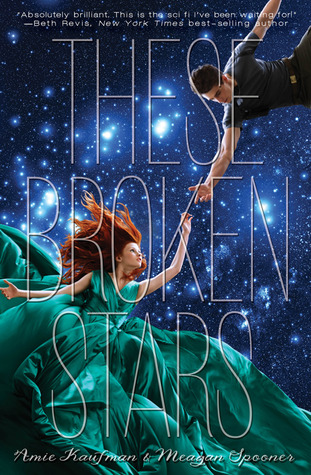Author: Sarra Manning
Rating: 5 Stars
It's not often that a book takes me completely by surprise. When I cracked open the spine of Unsticky, I knew what I was getting into - a modern-day "Pretty Woman" if you will. And yet, despite knowing what was to come, I was continuously blown away by this novel; by its charm, by its wit, by its complex characters, by its intriguing dialogue...everything, from the first word to the last period enthralled me. In fact, it's safe to say that Sarra Manning had me completely be-spelled. Manning's novels are always un-put-down-able, but this story had an ethereal quality all of its own. I dare you not to fall in love with this book; it's one challenge you won't even want to attempt.
I won't lie: the premises of Unsticky is, well, sticky. Grace, the protagonist of our tale, is massively in debt, working for the fashion-world (and being massively underpaid), and simply cannot keep a relationship going longer than three months. After being dumped - yet again - on her birthday, Grace is dragged off by Vaughn, a rich older man who tries to make her day a little brighter. It's not the last she'll see of Vaughn, though. In fact, the smooth-talking stranger (who is loaded with money), has a proposition for Grace: to become his girlfriend for six months, accompanying him on ventures to sell art. Grace, initially aghast at the lowly prospect of being paid to both spend her time with and have sex with this man, slowly begins to change her mind on the issue. After all, with her life stuck in a rut and her bills only piling higher, what does she have to lose? And, just as Grace hopes, Vaughn's proposition does change her life around. For better or for worse, she's still not entirely sure...
I'm going to get straight down to it: Sarra Manning takes a seemingly taboo topic and makes it work. And I don't even mean the characters. For me, what makes this situation so startlingly relate-able and downright thoughtful is the fact that Manning leaves no stone unturned on her journey to create this tale. Obviously, the most glaringly evident issue that this situation presents is the monetary aspect of it. Grace is being paid to spend time with, organize events for, and sleep with a man eighteen years older to her. "Ick!" is what we should all be saying, but truly, Vaughn makes you swoon. And even if he does, Manning brings up the ethical question of whether or not this situation is really okay, or even all that fair. Vaughn, as the One With The Money and the One With The Legal Contract clearly has the upper-hand in the relationship. It's a doomed union from the start, only because of this imbalance of power. And yet, how utterly fascinating is it? After all, these types of relationships are only all-too-common in the media today, but I love that Manning is able to take such a controversial topic, reveal how love can be found within it, and never brush aside the messy realities this situation brings.
Manning continues to bring up the importance of money - only because Vaughn has so much of it while Grace doesn't - throughout the novel. For me, seeing the subtle changes in Grace's life as money comes and goes played huge roles in defining her character. Grace, like most chick-lit heroines, is utterly endearing; refusing to pay her bills, brought up by her grandparents, besotted with the fashion industry, and struck by a terminal illness of binge shopping. Although she seems to be relatively shallow from the surface, her intelligence bleeds through the page, coming across in her sharp wit and her fierce determination to win ground when it comes to Vaughn. While Grace is - naturally - intimidated by the opulent lifestyle she now finds herself a part of, she meets each challenge with courage, slowly overcoming her own fears as her relationship with Vaughn progresses. Additionally, while she and Vaughn butt heads more than once - after all, Vaughn demands that his every command is fulfilled - theirs is an arc that continues to delight as the story progresses, journeying from stiff acquaintances to comfortable friends. It's a slow, but rewarding, adventure, filled with many memorable arguments, inexcusable words, and tender moments. Ultimately, Manning truly hits the nail on the head in capturing the complexity of their relationship, from its strange start to its unlikely meaning.
And what about Vaughn? Where do I possibly begin with this exasperating, enthralling man? Vaughn is, I suppose, an alpha-male in nearly every regard. And yet, I hesitate to slap that label upon him. Instead, I find him to be much more of a perfectionist, detail-oriented and a stickler for schedules. Vaughn merely has so many layers to him. As we get to know him better, we see sides to him that we've never seen before, but that never discounts the original angles we met him at either. Manning ensures that we are aware, constantly, of Vaughn's mixed nature: of his demands, but his charm; of his distance, but his insight. Easily one of the most intriguing aspects to Vaughn is his utter belief in Grace. Grace, whose parent-less upbringing has left her a mess; Grace, who lacks the backbone to stand up for herself; Grace, whose confidence level is at its lowest point. And, somehow, despite the difficulty of living with Vaughn, Grace begins to change, discover, and believe in the newer, better version of herself that Vaughn demands she put forward. Although their interactions are prickly at best, it works. Vaughn, too, is slowly changed by Grace, the man he hides underneath his layers slowly emerging. While Unsticky seems to contain that classic route of a significant other changing their partner, in reality, all the growth that these characters experience comes from within. It is never an easy or even a neat path. Often, the journey is plain difficult to watch unfold, but it's that brutal honesty that I can count on with Manning and that I come back for, every time.
Even if Unsticky weren't a love story, I would have loved it. Of course, the budding romance between Grace and Vaughn is tragically beautiful; sticky, sexy, and sweet. Yet, it is the individual growth - it is the people that these characters grow into after they walk away from each other - that makes this such a remarkable novel. I find that there is no dearth of "troubled" pasts in literature today, but Manning throws two seemingly normal people into an outlandish scenario and spins their tale magnificently. Moreover, I appreciated that the "secrets" hiding in Vaughn and Grace's closets were not so out-there as to be depressing. I cannot count the number of times I've seen messy pasts revealed to be drugs, rape, cancer, or some other form of emotional scarring. It's not that Manning's characters aren't emotionally broken - because they are - it's only that their pasts aren't as shady or different. If anything, Manning perfectly portrays that even the smallest of instances - a mother in another country, for instance - can grow and change a person's psyche incredibly.
If you're a fan of real character depth, messy relationships, or even unlikely affection, then Unsticky is not to be missed. While all her stories are compulsively readable, impossible to drag out as they consume your life so completely, this one was utterly flawless. In fact, I just want to take the day off tomorrow, snuggle under the blankets, and re-read this from cover to cover. It's that good. I just don't know how I'm going to possibly get over my book hangover from this one now...
Even if Unsticky weren't a love story, I would have loved it. Of course, the budding romance between Grace and Vaughn is tragically beautiful; sticky, sexy, and sweet. Yet, it is the individual growth - it is the people that these characters grow into after they walk away from each other - that makes this such a remarkable novel. I find that there is no dearth of "troubled" pasts in literature today, but Manning throws two seemingly normal people into an outlandish scenario and spins their tale magnificently. Moreover, I appreciated that the "secrets" hiding in Vaughn and Grace's closets were not so out-there as to be depressing. I cannot count the number of times I've seen messy pasts revealed to be drugs, rape, cancer, or some other form of emotional scarring. It's not that Manning's characters aren't emotionally broken - because they are - it's only that their pasts aren't as shady or different. If anything, Manning perfectly portrays that even the smallest of instances - a mother in another country, for instance - can grow and change a person's psyche incredibly.
If you're a fan of real character depth, messy relationships, or even unlikely affection, then Unsticky is not to be missed. While all her stories are compulsively readable, impossible to drag out as they consume your life so completely, this one was utterly flawless. In fact, I just want to take the day off tomorrow, snuggle under the blankets, and re-read this from cover to cover. It's that good. I just don't know how I'm going to possibly get over my book hangover from this one now...














